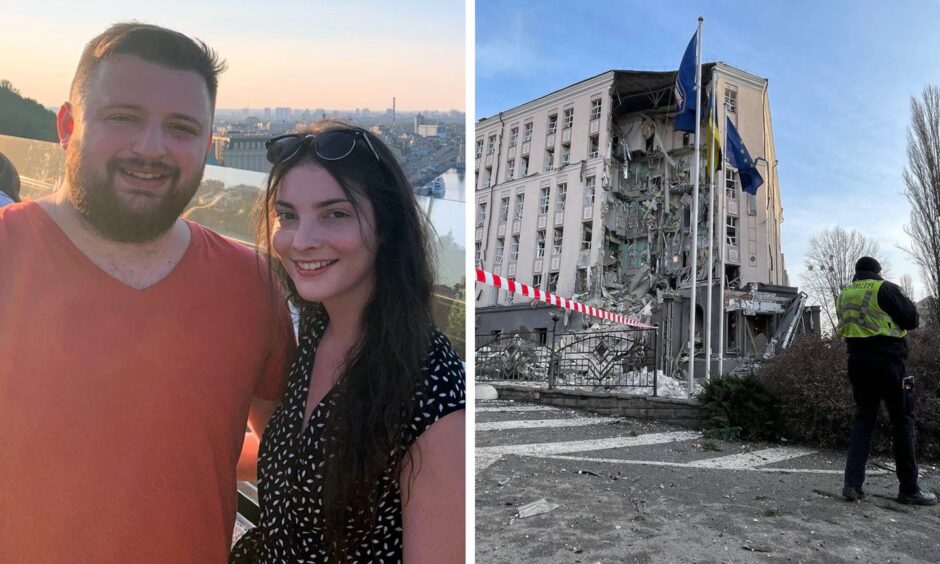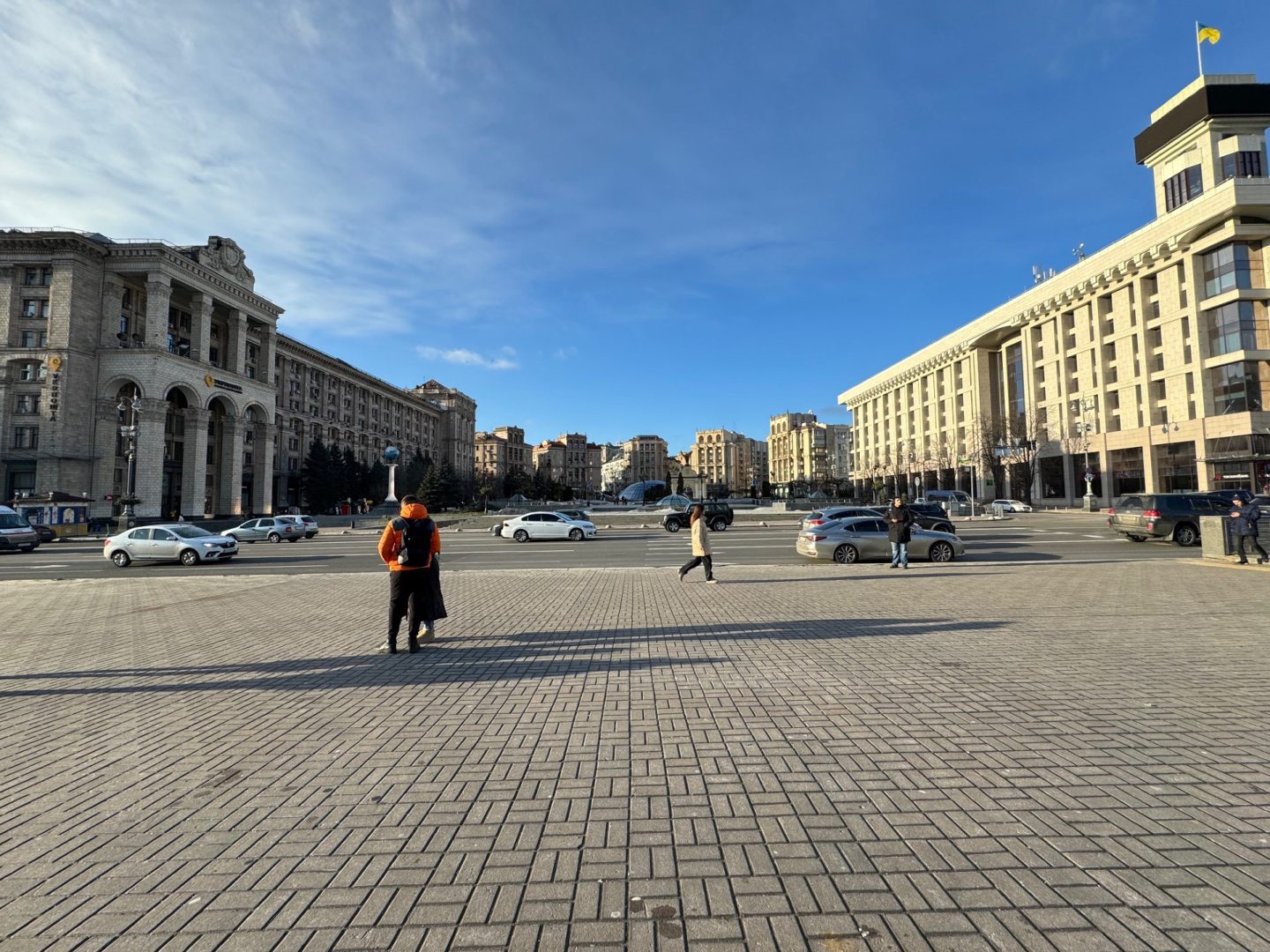
How does it feel to have family living in a warzone?
And what if you’re in charge of your blind grandmother’s care from 1,500 miles away?
That is the situation facing Aberdeen man Valentyn Tkach.
Valentyn left Ukraine as a five-year-old, moving first to Sheffield before settling in the north-east 15 years ago.
In January the 30-year-old account manager made his first trip to Ukraine since Russia invaded two years ago today.
He was there to visit his 87-year-old grandmother Valentina in Kyiv for the first time in three years.
Aberdeen to Ukraine no longer a straightforward journey, but Valentyn’s granny refuses to leave
Before the war, travelling to Ukraine was simply a question of booking a flight.
It’s fair to say much has changed since then.
Valentyn’s 30-hour journey began when he left his house in Cove to drive down to Edinburgh.
From there, he flew to Krakow in Poland before taking a train to Przemyśl near the Ukrainian border.
A further train brought him to the Ukrainian capital Kyiv.
More of an odyssey than a journey.
But more than worth it for an emotional reunion between Valentyn and his grandmother, whose care he is now solely responsible for.
“My grandmother refuses to leave,” said Valentyn.
“She said: ‘I’ve lived through the Second World War here, all my family is buried here.’
“She’s blind and needs day-to-day help. After my mum passed away, I’m the only person left to organise her care.
“I speak to her on the phone daily. I managed to sort her out with a smartphone connected to WiFi, so it’s a bit easier – and cheaper – now. Before that it was £1.50 a minute.
“So I know that when I call her, her carer will answer and I can chat to her and see how she is.”
‘It didn’t feel real’: Valentyn’s first time in Ukraine since the invasion
It was his first trip to Ukraine since the invasion. Last there in 2021, Valentyn noticed a huge change in the land of his birth.
The bustling, vibrant capital city he last saw had become a bleak, almost dystopian shadow of its former self.
“It didn’t feel real when I first got there.
“An air raid siren went off 20 minutes after I arrived. They go off daily.
“There was one big attack while I was there. I was woken up at around 6am by explosions outside.
“People died in that, I could see the body bags.
“After that, it suddenly felt real.
“I was on a massive train full of people one day, and I was one of only four men. Because all the men are at the front. That brought things home.
“It’s hard for everyone. People just walk about with their heads down, trying to get on with their daily lives.
“But it’s tough because so much closed after the invasion, so basic things like shopping for food, going to the bank, the doctors, sorting care for people, are far from straightforward.
“People take life day to day, there’s nothing more they can do. They’re in survival mode, that’s the bottom line. They’re surviving and thinking about what they can do to help.
“Organising care for my grandmother has been difficult, because so much official business and functions closed after the invasion. Which also meant a lot of people lost their jobs.
“The country just has to operate the best it can to keep the economy going.”
‘Coming back to Aberdeen was surreal’
All in all, a shock to the system. Despite having had as close to insider knowledge as someone living on the other side of the continent can have.
The chaos war has wreaked on Ukraine fully sunk in when Valentyn returned to the north-east.
“Coming back to Aberdeen was surreal.
“Just knowing Sainsbury’s was open till 8pm, seeing people buying food, just getting on with their lives without having to worry, it was a bit like a dream after two weeks in Kyiv.”
He added: “People here have been very supportive since the invasion began, my work have been particularly supportive.
“They know what it means and about my connections there and that I have my grandmother in Kyiv.”
‘I think about Ukraine every day’
Of course, Ukraine isn’t the only part of the world experiencing the horrors of conflict at the moment.
But while the Israel-Palestine situation continues to dominate news headlines, it’s worth reflecting on the sheer scale of the ongoing war in Ukraine.
According to UN sources as of the end of January, there were 27,000 reported deaths in the Israel-Palestine conflict.
In Ukraine, more than 100,000 civilians were believed to have been killed in the first year of the Russian invasion.
“I hope talking to you helps shed some light back on the situation in Ukraine,” said Valentyn.
“Obviously the news has died down because of other things happening in the world, but that’s now been two years and it’s still going, it’s still hitting people very hard there.
“No-one knows how or when it’s all going to end. Because nobody thought it was possible that the invasion could happen in the first place, not in the 21st century. No-one believed it would happen.
“I mean it’s not far away, it’s still Europe, just a flight and a train ride away.
“I think about Ukraine and the situation there every day. I can’t not.”





Conversation